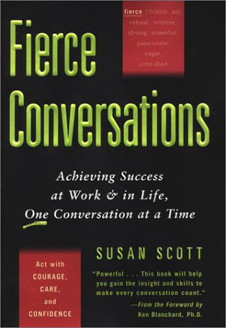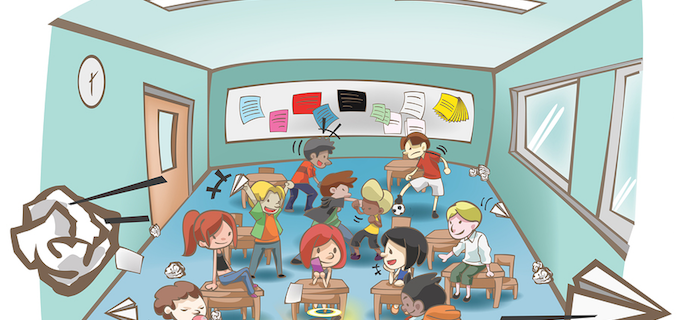Repairing Student and Co-Worker Relationships

Effective teachers are always working very hard to build and repair relationships with individual students. But what do you do if you mess up in front of an entire class one day? What do you do if you find out a co-worker is mad at you? What do you do if you are grading papers in your room at 6 p.m. and suddenly realize you forgot about the staff meeting that was supposed to be right after school?
As human beings, and teachers, we are going to make mistakes. Those mistakes might be in the classroom with a room full of students watching you. That mistake might end up being an email you sent that was taken the wrong way. You might upset a parent, a co-worker, or your principal.
In situations like these some people are more tempted to slide the issue under the rug, ignore it, or run from it. Those responses may seem easier, but we are going to encourage you to take a different approach.
Admitting faults or mistakes can be difficult for anyone. But in this profession, and in life, we cannot be afraid to repair. And the sooner the better!
When you misstep in front of your class
Our first example is going to show you how to repair with an entire class. Imagine that you are doing an activity with your eighth hour on a Friday. Not only is it Friday, but it just so happens to be the Friday before Halloween. It’s the last class of the day and they start off a little squirrely.
You begin by giving a few redirects to a pair of overly chatty students. You then try to compliment good behavior from the students who really are working diligently. However, as the hour continues the volume rises and more and more people seem to be getting off task.
You see a pencil fly across the room. Then a couple students try to make a three-point shot into the trashcan with their scraps of paper. Your patience is waning and you finally ask for the entire class’s attention. It takes what seems like several minutes for everyone to stop talking and turn their focus to you.
By this point you are so frustrated that you sternly tell them to put everything away, put their heads on their desks, and sit there in silence the last few minutes of the period. They leave when the bell rings and immediately you start to feel anxious. You worry all weekend about how you should address the situation and the class on Monday.
When reflecting on what happened, you feel uncomfortable with how you handled the situation. Yes, they were misbehaving, but there is a chance you were too. You know that when Monday comes and eighth hour arrives, you need to repair the relationship and apologize for your unprofessional actions.
On Monday, the students trickle into the room and after the bell rings you let them know you have something you need to say. “I want to apologize for what happened Friday in class. I am so sorry that I raised my voice inappropriately and ended the fun activity we were doing. I handled the situation and more importantly handled myself unprofessionally.”
“Secondly, I need to let you know that my feelings were hurt by your behavior on Friday. I felt disrespected when you ignored me and threw things around our classroom. We both need to choose alternative behaviors in the future.”

Next, you shared your feelings. Instead of saying their behavior was “terrible,” “ridiculous,” or “out of line,” you became vulnerable and softened the situation. Words like that put those students on the defensive and make them tune you out or attack back. Saying you “felt disrespected” shifts the perspective.
An additional option that you can choose to use is inviting your students to share their feelings as well (Scott, 2002). This entirely depends on your ability to respond appropriately when you may not get the answer that you want. Thus, only use this strategy when you feel comfortable and confident enough to facilitate and listen.
One of the most common reactions when you apologize to your class or an individual is for a student to say, “We have never had a teacher apologize before.” This is a great reassurance that you handled it correctly and now you and the student(s) are ready to move forward.
When you damage a relationship with a co-worker
A second scenario to consider is how to repair a relationship with a co-worker. Imagine that you found out a teacher is upset because of an email you sent. You remember writing the email during a time of frustration, so you open it back up to refresh your memory. After rereading it, you see how it could have been taken the wrong way and hurt feelings.

Short and simple. The sooner this conversation happens the better. If you let them sit in their feelings for too long your apology might not seem as sincere or they may be slower to forgive.
When you earn negative attention from a supervisor
Finally, what do you do if you need to apologize to a supervisor, like if you missed a faculty meeting by accident?
Never wait for the principal to come find you. Again, be the one to initiate contact. The second you realize you missed the meeting, email, but also go directly to your principal and apologize as soon as she or he is available.
“Dr. Boyer, I was in my classroom grading papers and just realized I missed the faculty meeting after school. I am so sorry! Please let me know what I missed and if there is anything I need to do to make up for my absence. Again, I am so sorry that I missed the meeting.”
If you still feel a twinge of guilt the next morning, feel free to go to their office first thing in the morning with another apology.
Remember . . .
We’re going to make mistakes in our professional lives, just as we do in our lives outside of school. Admitting our mistakes, taking steps to repair what’s damaged, and striving to do better next time will earn the respect of our colleagues and friends over time.
Read MiddleWeb’s review of the Whitakers’ book:
Your First Year: How to Survive and Thrive as a New Teacher
__________

































Another book to add to my reading list. See my review of Ryan Donlan and Todd Whitaker’s excellent The Hero Maker.